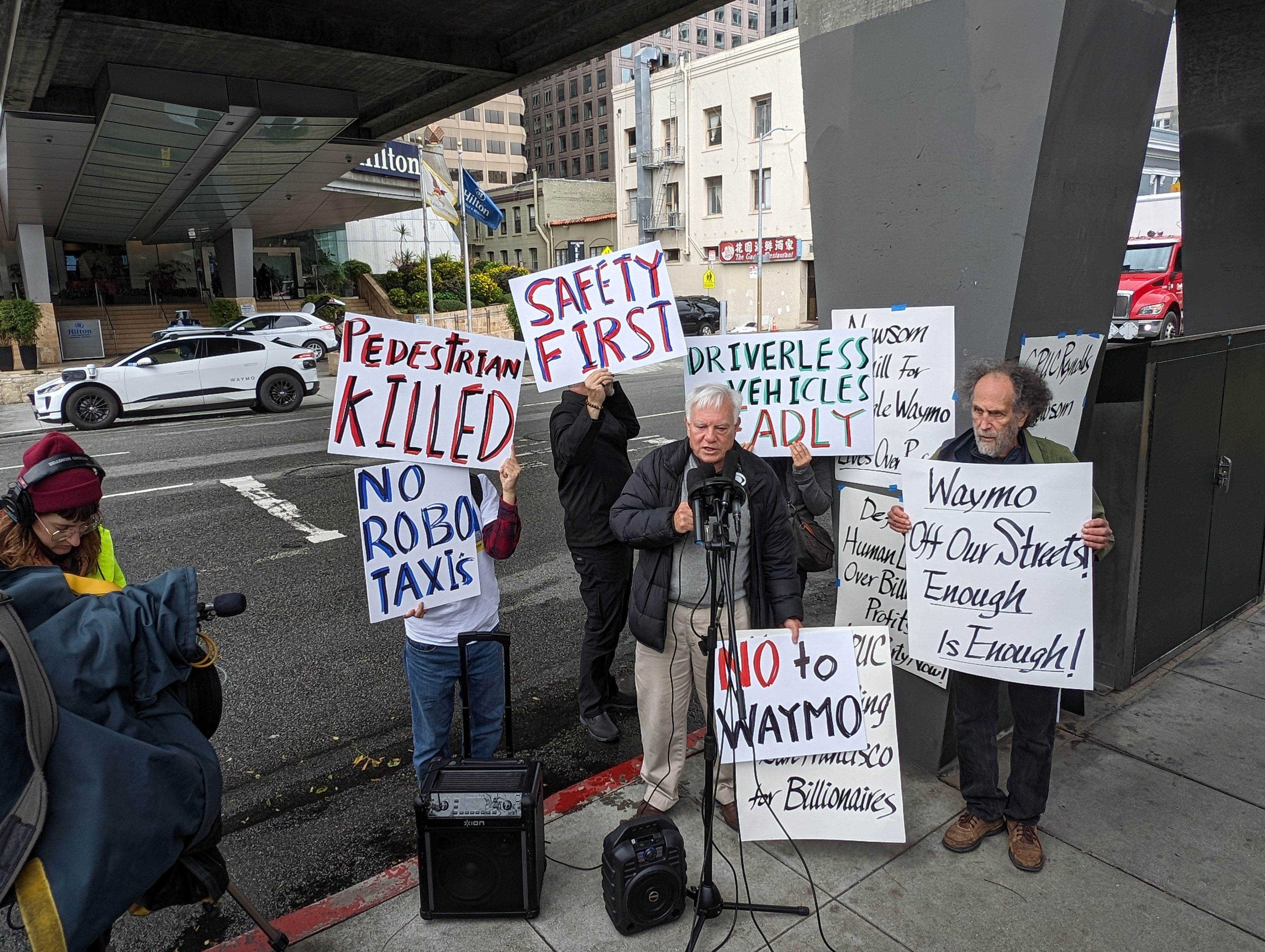A coalition of San Francisco residents, safety advocates and workers is demanding Gov. Gavin Newsom immediately ban self-driving taxis, accusing the companies that operate them of endangering public safety.
The group, called the Network for Safety in Our Streets & for Working People, held a press conference in Chinatown Monday calling on Newsom to remove all Waymo autonomous vehicles from city streets and revoke permits for other self-driving car companies like Cruise.
The demands follow an incident in Chinatown where a Waymo robotaxi was set on fire during Lunar New Year celebrations and a serious accident in October where a Cruise vehicle struck and dragged a San Francisco pedestrian.
“We cannot afford another catastrophe by these vehicles,” organizer Edward Escobar said in a statement Sunday. “We demand that Governor Newsom remove all Waymo self-driving taxis from the streets of San Francisco and California immediately.”
The coalition claims Newsom is beholden to corporate interests, vetoing legislation to limit driverless trucks and accepting $10 million in campaign funds from Alphabet, Waymo’s parent company.
Self-driving cars have been involved in over 2,000 collisions in California since 2014, with a state motor-vehicle department tally finding most reported by Waymo and Cruise.
According to one International Transport Forum scenario, autonomous trucks could reduce the demand for drivers by 50% to 70% in the U.S. and Europe by 2030, resulting in a loss of between 2 million and 4.4 million jobs.
The group has backing from the Alliance for Independent Workers and United Front Committee for a Labor Party, arguing the technology benefits corporations at the public’s expense.
“We believe that self-driving cars are a threat to the public interest and the common good,” committee representative Steve Zeltzer said.
At Monday’s press conference on a Kearny Street sidewalk under a pedestrian bridge between a San Francisco Hilton hotel and Chinatown’s Portsmouth Square, others joined Escobar and Zeltzer in calling out what they saw as danger and complicity.
“We don’t do the kinds of things that these guys do,” San Francisco Taxi Workers Alliance board member Mark Gruberg said, expressing concern over the presence of Waymo, Cruise and Zoox, as well as “40-some odd companies that have permits to test these robo-vehicles.”
“We don’t run into fire trucks. We don’t drive into wet concrete,” Gruberg continued. “We don’t run over people and then drag them for 20 feet, because we don’t recognize that there’s a human being beneath our wheels. So the [California Public Utilities Commission] really has to get its act together.”
When reached for comment Monday, a Waymo spokesperson shared comments from people with disabilities supporting its robotaxis.
Anni Chung, the president and CEO of Self-Help for the Elderly, called the vehicles “one of the great equalizers when it comes to safety benefits and transportation access for our senior communities.”
Another comment, from LightHouse for the Blind and Visually Impaired San Francisco CEO Sharon Giovinazzo, asserted that “Waymo has offered me, as well as many other individuals with visual impairments, unparalleled independence and safety.”
When advised of those comments, Escobar replied that the human aspect of traditional taxi service makes a huge difference.
“Who’s going to help with the wheelchair? Who’s going to help with the cane? Who’s going to help them go that extra mile?” he said. “The vehicle can’t do that. It doesn’t come equipped with robots. At least, not yet.”
This story has been updated with comments from leaders of groups that advocate for people with disabilities.
